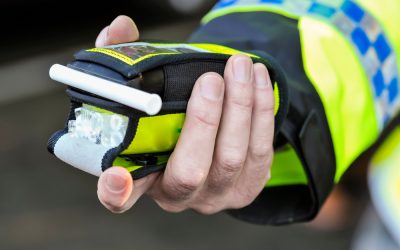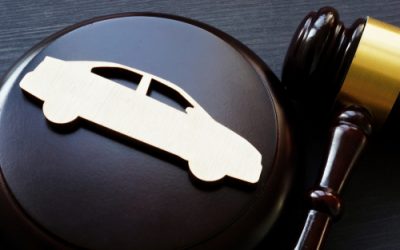
The California Department of Motor Vehicles (DMV) can automatically suspend your license after an arrest for driving under the influence (DUI). However, you can request a hearing to prevent the suspension of your driving privileges. How do you win a DMV hearing in California?
Winning a DMV hearing requires you to demonstrate a lack of cause for a DUI charge. A Los Angeles DUI lawyer can help you successfully navigate this administrative hearing. You can learn more about your options when you call or complete our online contact form.
Why Do You Need to Worry About a DMV Hearing?
Drivers need to pay attention to the DMV administrative hearing because the DMV can suspend their driving privileges. This suspension can happen before you’ve even had your day in court. We call this an “admin per se” license suspension or administrative suspension.
Administrative suspension goes into effect automatically just 30 days after your arrest. Fortunately, you can request a hearing and work with a defense attorney to protect your license. A lawyer can explain what a DMV hearing in California is.
How Long Do You Have to Request a Hearing?
You can fight the suspension by requesting an administrative hearing within 10 days of the arrest. Therefore, you have limited time to set up and prepare for this administrative review. Contacting a defense lawyer right away can help you stay on track.
How Can You Win a DMV Hearing?
You can win your DMV hearing by convincing a DMV hearing officer that there aren’t solid grounds for you to face a DUI charge. If you successfully make your case, they will drop the suspension and wait for the courts to make a decision about your criminal charges.
The hearing officer will consider factors like:
- Did the officer have probable cause to suspect you of DUI?
- Was the arrest done lawfully?
- If you took a chemical test: Were you driving with a blood alcohol concentration (BAC) of .08% or more?
- If you refused the test: Did the police officer warn you that refusing it would result in a suspended license, and did you refuse it willfully?
To win your hearing, you must present strong arguments against one or more of these points, with as much evidence as possible. You are allowed to:
- Have your DUI lawyer represent you at the hearing
- Have the hearing held in person rather than over the phone
- Subpoena the arresting officer or other witnesses and cross-examine them
The professionals recommend that you take advantage of all three options to increase reasonable doubt about your arrest and the charges you face. Understanding the California DMV hearing can help you feel more confident about winning.
Seven Strategies That Can Win a DMV Hearing
Based on the above factors, there are a wide variety of defenses that can win a DMV hearing. A good DUI lawyer will know all of them and choose the strongest ones for your specific case. Seven of the most effective arguments include showing:
A Lack of Probable Cause
Police officers cannot pull over a car without reason, nor can they pull you over based purely on your race (“racial profiling”). If the police stopped you without probable cause, there’s a solid chance to protect your license.
The Officer Failed to Follow an Observation Period
Before administering a breath test, the police must observe you for 15 minutes. This observation period is to ensure that you do not burp, vomit, eat, or drink anything before the test. The test results may not be accurate if the police fail to observe you properly.
A DUI Checkpoint Ignored Proper Legal Procedures
It is legal for police to hold DUI checkpoints or “roadblocks,” but they must follow strict legal procedures. They must:
- Alert the public to the roadblock in advance
- Screen cars on a random basis\
- Have supervisors on hand to monitor the process
- Follow other rules
A lawyer may demonstrate to the hearing officer that officers in Orange County failed to uphold these standards.
You Weren’t Driving
If you didn’t actually drive your car, then you are not guilty of DUI and should not lose your driving privileges.
Your Blood Alcohol Concentration (BAC) Test Gave False Results
Blood or breath tests administered by police officers can be thrown off by many factors such as mouth alcohol, rising BAC, your diet, and even medical conditions, falsely making it seem you’re over the legal limit and resulting in a drunk driving arrest.
The Test Equipment Malfunctioned
Breath test equipment must be maintained and calibrated regularly. Your lawyer can pull the calibration record for your breath test device. If it wasn’t calibrated or there’s evidence of a malfunction, the results may not be valid in Orange County.
A Police Officer Failed to Provide You With Relevant Information
Police officers are supposed to advise you of the consequences of refusing a chemical test when they first ask you to take it. If not, the refusal may not count against you, influencing the DMV hearing decision.
What’s the Value of Winning a DUI Hearing?
Winning your DMV hearing gives you two significant advantages:
- Your license suspension will pause until the hearing date, which is often months away, so you can continue operating your vehicle as usual.
- If you make a strong case at the hearing, you may get the administrative suspension dropped altogether. That means you get to keep your driver’s license until and unless the court convicts you of a DUI.
You want to win your hearing if at all possible. To do that, you need to know what the hearing officer is looking for and what kinds of evidence will help you win by meeting the burden of proof beyond a reasonable doubt.
Learn More About Winning Your DMV Hearing in California
How do you win a DMV hearing in California? You can work with a lawyer to determine which legal defense strategies will work best during your license suspension hearing. A lawyer can help you throughout the hearing process, fighting an automatic suspension.
Learn more about the benefits of hiring a criminal defense lawyer by calling or completing our online contact form.






